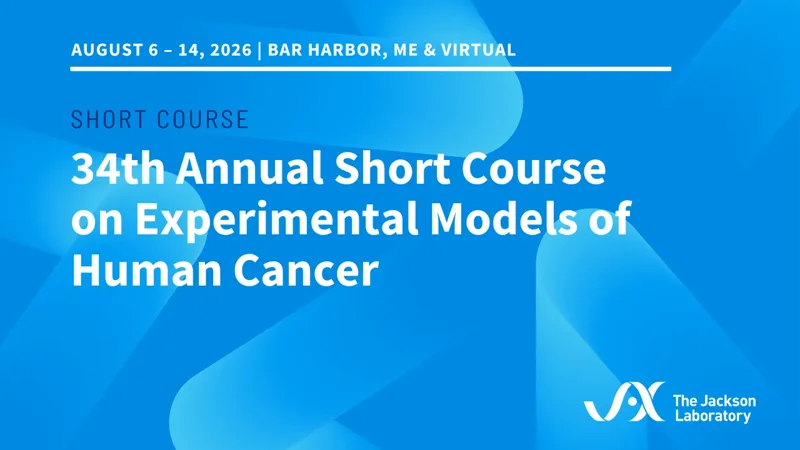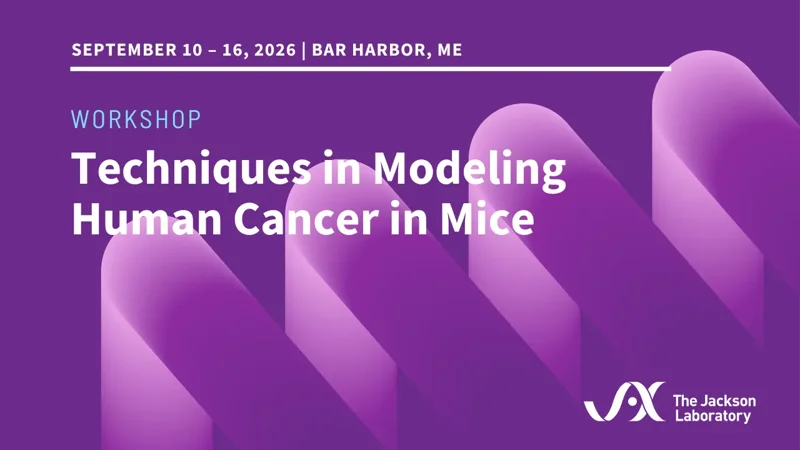Advance your cancer research by developing deeper understanding and use of cancer research models through hands-on experiences and expert-led training at JAX.

August 6 – 14, 2026 | Bar Harbor, Maine & Virtual
This signature cancer training program at JAX combines expert-led seminars with hands-on workshops and computational sessions, providing a broad survey of contemporary cancer research and experimental modeling for postbacs, graduate students, postdocs and early career researchers. Engage and network with leading experts in cancer genetics, cell biology, tumor immunology, and emerging animal models of human cancers during interactive workshops, poster sessions and evening receptions.

September 10 – 16, 2026 | Bar Harbor, Maine
Join us for a comprehensive, hands-on workshop where you'll learn to harness the power of laboratory mice to explore gene function and the role of genetics in cancer biology. Didactic lectures by world-renowned scientists reflect current knowledge of modeling cancer in a variety of organ sites and emphasize common themes in cancer research and modeling. Develop your skills in cancer model manipulations and surgical techniques that are broadly applicable for many cancer types through laboratory sessions.